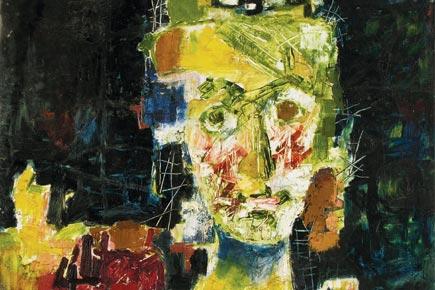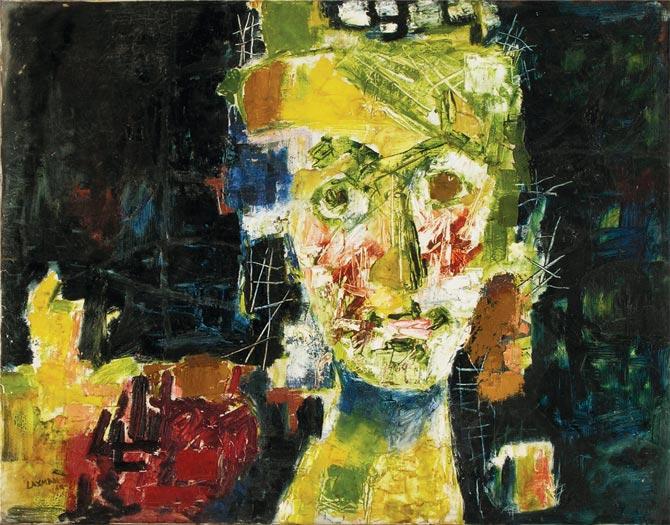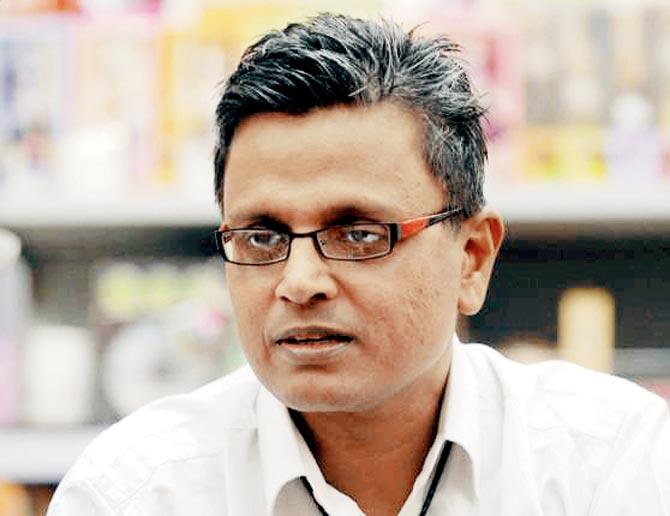Here's how a Greek philosopher and an Indian and German mathematician - all dead - meet Laxman Shreshtha


ADVERTISEMENT
The most striking part of legendary artist Laxman Sreshtha's work, according to sociologist and cultural theorist Ranjit Hoskote, is its expansiveness. As if they aspire for the openness of the sky resisting the finite. An exhibition of his works at Chhatrapati Shivaji Vastu Sangrahalaya is hence naturally titled, Laxman Sreshtha: The Infinite Project.
In the first event around this exhibition, author and Mathematics writer Dilip D'Souza will take us on a slightly different route, exploring the meaning of infinite itself and the way it has been perceived by mathematicians over centuries in a talk, titled, The Men Who Knew Infinity.
"When people think of infinity, they think of something endless and boundless. While there is some truth to these explanations, there is a lot more to talk about," says D'Souza. To explain this, he says, the talk will touch upon ancient Greek philosophers and mathematicians as well as celebrated Indian mathematician S Ramanujan, who has been hailed for his work on infinity.
Laxman Sreshtha's works are known to explore the concept of infinity. The first segment of the exhibition of Sreshtha’s works will continue till October
Meet the mathematicians
S Ramanujan is one of India's most renowned mathematicians who made major interventions in the ideas number theory and infinite series. An autodidact he researched for a long time on his own until finally mathematicians in India and Europe discovered him. Zeno of Elea was a pre-Socratic Greek philosopher and a member of the Eleatic School founded by Parmenides.
He is best known for his paradoxes, which the mathematician and philosopher, Bertrand Russell described as "immeasurably subtle and profound." Although many ancient writers refer to the writings of Zeno, none of his works survive intact. The main sources on the nature of Zeno's arguments on motion come from the writings of Aristotle. Georg Cantor, the German mathematician, invented the set theory. This theory, apart from becoming a fundamental part of mathematics also made landmark progress in understanding infinity.

Dilip D'Souza
German mathematician David Hilbert is recognised as one of the most influential mathematicians of the 19th and early 20th centuries. Hilbert discovered and developed a broad range of fundamental ideas in many areas, including invariant theory and the axiomatisation of geometry. He also formulated the theory of Hilbert spaces, one of the foundations of functional analysis.
On September 14, 6 pm
At Visitors Centre, CSMVS, 159-161, Mahatma Gandhi Road, Fort.
Call 22844484
 Subscribe today by clicking the link and stay updated with the latest news!" Click here!
Subscribe today by clicking the link and stay updated with the latest news!" Click here!






